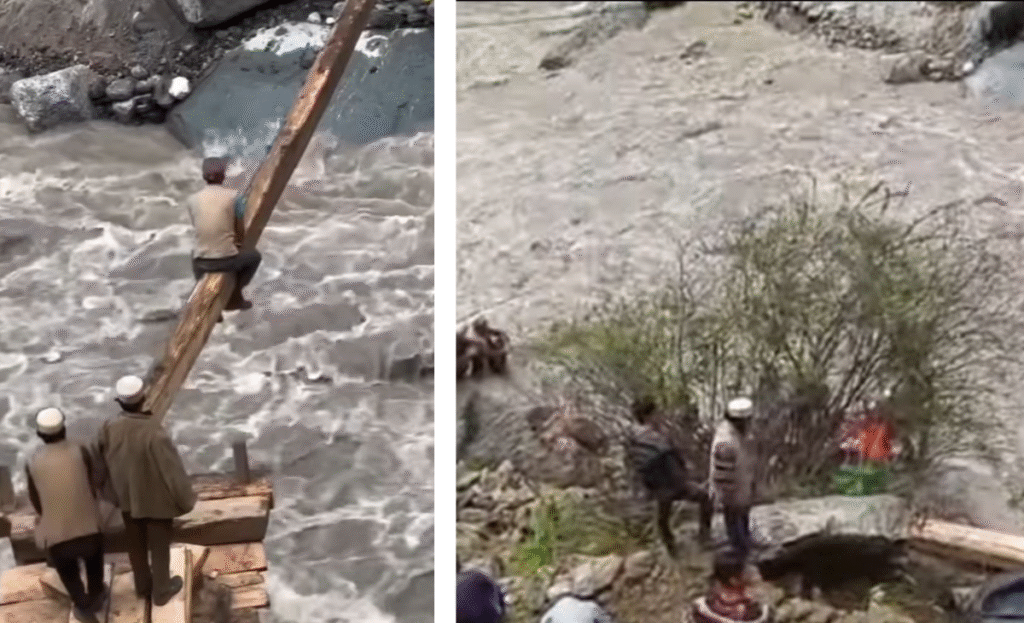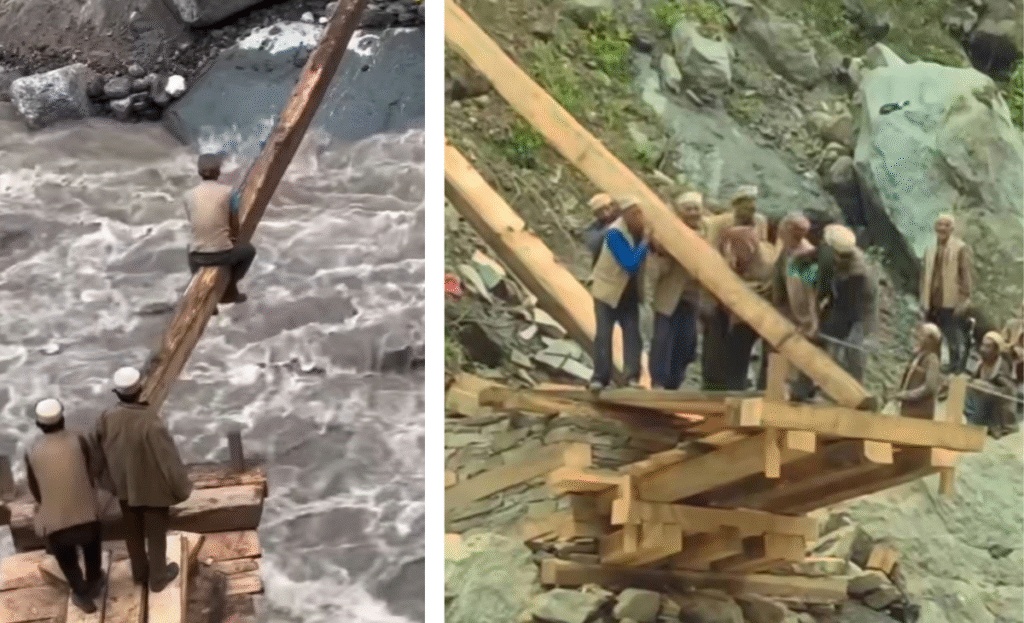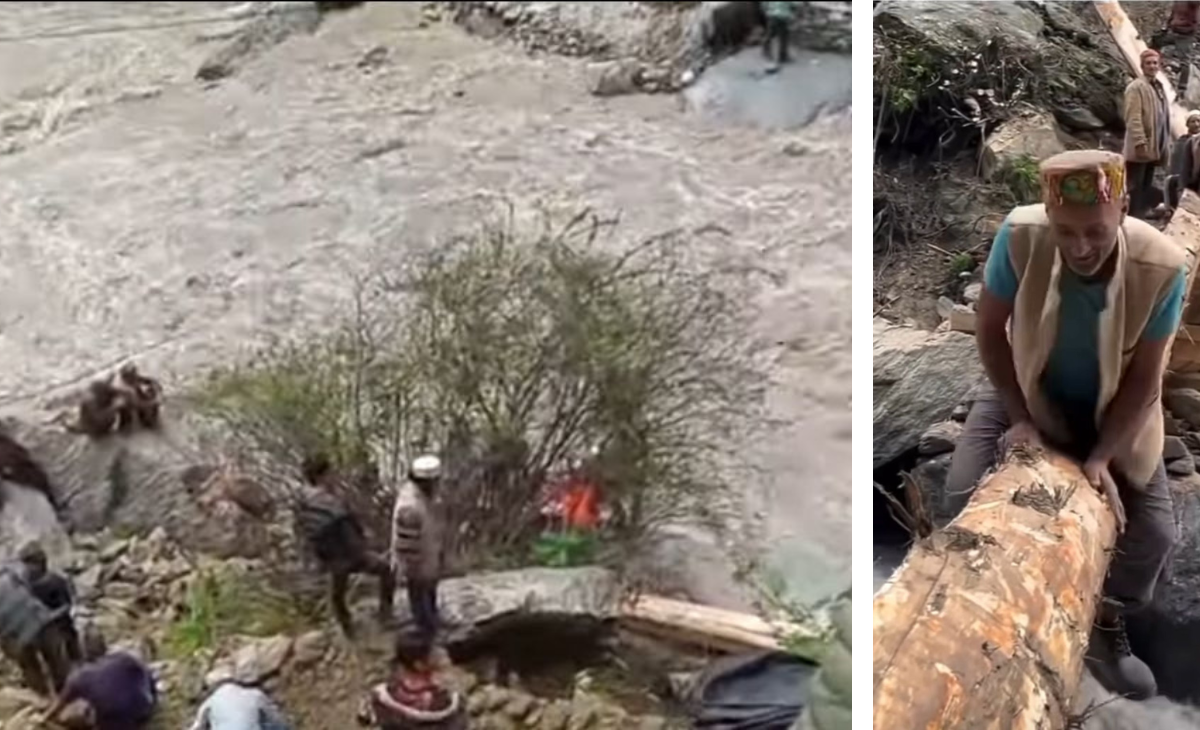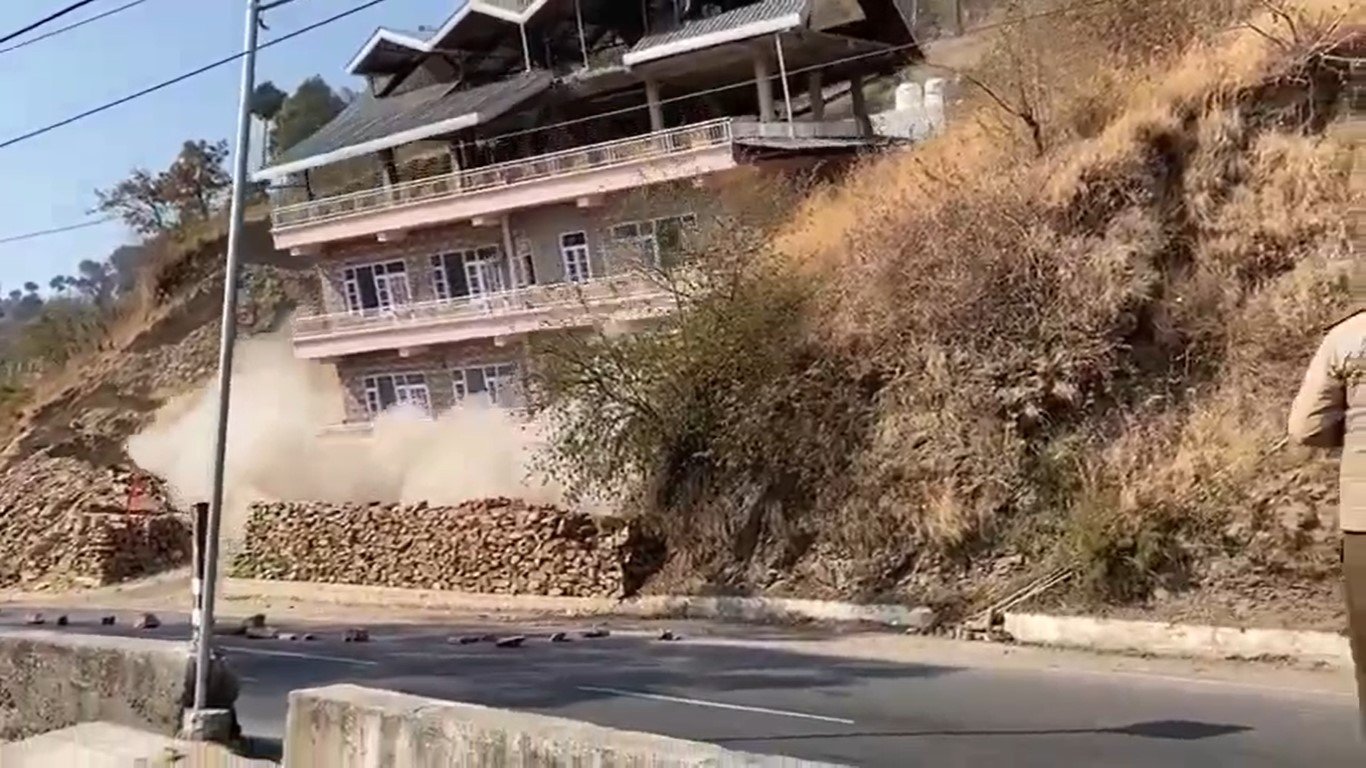Munish Sood
Mandi
When relentless rains brought another flash flood roaring through the mountains of Himachal Pradesh’s Kullu district, the tiny village of Malana found itself cut off from the world — again. Bridges were swept away. Roads, already eroded, became lifelines lost. But the villagers didn’t wait. They never do.
Instead, like last year, the people of Malana put down their despair and picked up their tools. On Sunday, using little more than wood, ropes, and sheer willpower, they began rebuilding — not for the first time, and likely not the last.
Floods Wash Away Bridges, But Not Spirit
Two vital wooden bridges connecting Malana village to the outside world were destroyed last Friday after heavy rains swelled the Malana stream. With those gone, movement between homes and markets came to a halt. Yet, by Sunday, over 200 villagers had gathered at Nerang, a nearby point across the river, and began building again.
“We crossed the river by walking along the dam wall, laid the first rows of boulders ourselves, and began the bridge work from both sides,” said Raju Ram, the village head. “There’s no other way — we have to do it ourselves.”

This is not new for them. The previous year’s flood had also washed away bridges, and despite repeated pleas to the administration, government help never arrived in time. The people of Malana had built makeshift wooden bridges then too — bridges that allowed children to go to school, patients to reach help, and food to return to homes.
And now, history repeats — not the failure of the system, but the self-reliance of its people.
They Don’t Wait for Help — They Become It
In a remote Himalayan valley where each winter brings snowstorms and every summer brings landslides, Malana has learned the hard way: survival here isn’t a right — it’s earned. That’s why, without waiting for any official machinery to gear up, the villagers began the reconstruction work themselves using limited resources and traditional methods.
“This jugaad (makeshift) bridge may not look modern, but it restores life,” says a local elder. “It shows that when willpower is strong, no problem is too big.”

The rebuilding effort is entirely community-driven — men, women, even elderly villagers have joined hands. At a time when roads are non-existent and supply chains broken, their unity is their greatest strength.
Ration at Triple the Cost, Roads Still a Dream
The absence of a road since last year’s disaster has had an enormous economic impact. With no vehicles reaching Malana, all supplies must be manually carried — first by jeep to the dam, then across a rope-span, and finally hauled on backs by Nepali porters to the village.
₹500 worth of goods now cost ₹1,500 to reach homes.
LPG cylinders priced at ₹1,000 in the market are sold for ₹3,000 here.
Tomatoes and onions cost ₹150/kg — double the average market price.
Shopkeepers, often wrongly blamed for inflation, say they are helpless in the face of logistical chaos. “The cost of transporting even a sack of rice is over ₹2,000. We’re barely surviving,” says local shop owner Daulat Ram.
Tourist Vehicles Stranded, Taxi Drivers in Crisis
The broken road has left over 150 vehicles, including those of tourists and local taxi drivers, stranded in Malana for over a year. Taxi operators like Harish Kumar and Chande Ram, who bought their vehicles on loan, say they are now on the brink of bankruptcy.
“Our taxis have been stuck since last year. We can’t earn. We can’t repay our loans. If the road isn’t fixed soon, we’ll lose everything,” says Harish Kumar.
A Helipad Built, But No Takeoff
In their desperation last year, villagers had even cleared ground and built a makeshift helipad, hoping to enable emergency air-drops or evacuations. But the plan failed — thick forest trees around the landing site made helicopter access impossible.
Still, they tried — because that’s what Malana does.
Authorities Respond — Slowly
Kullu Deputy Commissioner Torul S. Ravish said that instructions for road and bridge construction have been issued, and work will begin once weather conditions permit. But this assurance offers little comfort to a village that has, for years, been its own savior.
Malana’s Message: Strength Lies in Unity, Not Just Policy
What Malana’s people have shown, again and again, is that remote doesn’t mean helpless. While policies wait, they act. While systems stall, they build.
This isn’t just a story about bridges and floods. It’s about resilience born of hardship, and the quiet dignity of people who refuse to be victims.
In Malana, when nature tests them, they don’t pray for rescue — they pick up wood, roll up sleeves, and rebuild what the river took away.





